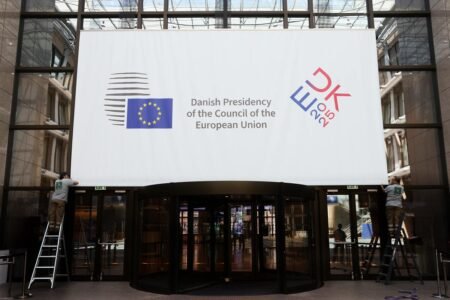(BRUSSELS) – The European Commission put forward legislation Thursday to establish a common charging solution for mobile phones, hailing it as an important step against e-waste and consumer inconvenience.
Consumers have been inconvenienced by the prevalence of different, incompatible chargers for electronic devices, says the EU executive. Years of working with industry on a voluntary approach brought down the number of mobile phone chargers from 30 to 3 within the last decade, but this did not deliver a complete solution.
With the new proposal for a revised Radio Equipment Directive, the charging port and fast charging technology will be harmonised: USB-C will become the standard port for all smartphones, tablets, cameras, headphones, portable speakers and handheld videogame consoles. In addition, the Commission proposes to unbundle the sale of chargers from the sale of electronic devices. The Commission says this will improve consumers’ convenience and reduce the environmental footprint associated with the production and disposal of chargers, thereby supporting the green and digital transitions.
EC vice-president Margrethe Vestager said the industry had been given long enough to come up with their own solutions: “European consumers were frustrated long enough about incompatible chargers piling up in their drawers”, and the time was now ripe for legislative action for a common charger. “This is an important win for our consumers and environment and in line with our green and digital ambitions,” she added.
In 2020, approximately 420 million mobile phones and other portable electronic devices were sold in the EU. On average, consumers own around three mobile phone chargers, of which they use two on a regular basis. Consumers spend approximately EUR 2.4 billion annually on standalone chargers that do not come with electronic devices. In addition, disposed of and unused chargers are estimated to pile up to 11,000 tonnes of e-waste every year.
The Commission is proposing:
- A harmonised charging port for electronic devices: USB-C will be the common port. This will allow consumers to charge their devices with the same USB-C charger, regardless of the device brand.
- Harmonised fast charging technology will help prevent that different producers unjustifiably limit the charging speed and will help to ensure that charging speed is the same when using any compatible charger for a device.
- Unbundling the sale of a charger from the sale of the electronic device: consumers will be able to purchase a new electronic device without a new charger. This will limit the number of unwanted chargers purchased or left unused. Reducing production and disposal of new chargers is estimated to reduce the amount of electronic waste by almost a thousand tonnes’ yearly.
- Improved information for consumers: producers will need to provide relevant information about charging performance, including information on the power required by the device and if it supports fast charging. This will make it easier for consumers to see if their existing chargers meet the requirements of their new device or help them to select a compatible charger. Combined with the other measures, this would help consumers limit the number of new chargers purchased and help them save 250 million a year on unnecessary charger purchases.
The legislation now needs to be adopted by the European Parliament and the Council by ordinary legislative procedure (co-decision). A transition period of 24 months from the date of adoption would give industry ample time to adapt before entry into force.
Commission proposal on a common charging solution for electronic devices - background guide








